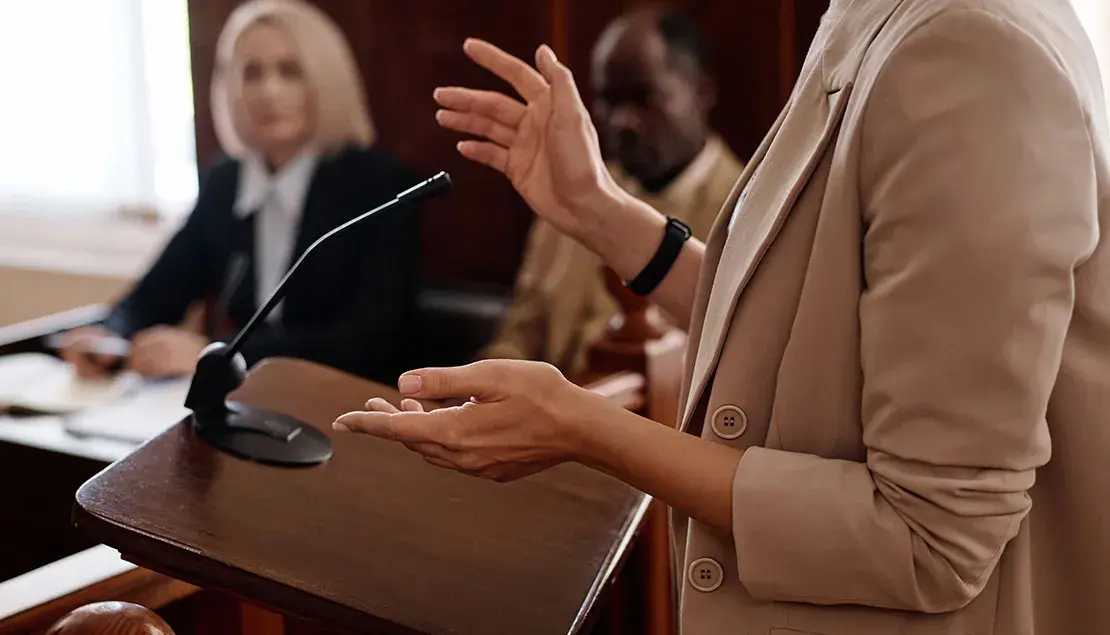Expert witness testimony can be the deciding factor in the outcome of negligence claims, providing crucial insights and evidence that can sway the case in favor of the claimant.
Expert witness testimony can be the deciding factor in the outcome of negligence claims against manufacturers or corporations, providing crucial insights and evidence that can sway the case in favor of the claimant.
But what does it take to pursue a negligence claim successfully? From gathering strong evidence to leveraging expert testimony, building a compelling case requires a clear understanding of the legal process and its key components.
What is a Negligence Claim?
A negligence claim arises when a person suffers harm due to another party's failure to exercise reasonable care. This legal concept is rooted in the idea that everyone has a duty to act in a manner that does not cause harm to others. When this duty is breached, resulting in injury, the injured party may be entitled to seek compensation. To understand how to pursue such claims, you might want to explore our guide on filing a mass tort claim.
Negligence claims can cover many situations, from car accidents and medical malpractice to defective products and unsafe premises. The claimant must prove that the defendant's actions or inactions directly caused the injury and that the injury led to actual damages. Examples of ongoing negligence lawsuits include claims against Johnson & Johnson for alleged unsafe talcum powder products, claims against the manufacturers of Paraquat, and claims against certain hair relaxer products that have been linked to injuries.
Gathering Evidence for Your Claim
Gathering credible evidence is crucial for a successful negligence claim. Key pieces of evidence often include medical records, which document the extent of injuries and the treatment required. These records can help establish a direct link between the incident and the harm suffered. If you're unsure about your eligibility to file a claim, our article on understanding mass tort claim eligibility can provide valuable insights.
Additionally, records of product purchases can be vital, especially in cases involving defective products. These documents can prove that you owned the product in question and may include details about its condition and any warnings provided by the manufacturer. If you suspect your health issues are linked to a product, taking specific steps to document and report your concerns is important.
The importance of evidence in negligence claims cannot be overstated. Detailed and well-organized evidence can strengthen your case, making it more compelling and easier to understand for the court.
Understanding the Importance of Expert Witnesses in Negligence Claims
Expert witnesses play a pivotal role in negligence claims by providing specialized knowledge that can be critical to proving key elements of the case. Their testimony can help clarify complex issues, making it easier for the court to understand the nuances of the claim.
These professionals can offer insights that go beyond the understanding of a typical layperson, shedding light on technical details crucial for establishing negligence.
Types of Expert Witnesses Commonly Used in Negligence Cases
Negligence cases often require different types of expert witnesses, each with their own area of specialty. Medical experts are frequently called upon to discuss the nature and extent of injuries and the expected recovery process.
Science experts might be necessary in cases involving defective products. They can explain how a product failed, linking these failures to the injury suffered. Other common types of expert witnesses include financial experts, who can assess economic damages, and vocational experts, who can evaluate the impact of injuries on a claimant’s ability to work.
How Expert Testimony Can Strengthen Your Negligence Claim
Expert testimony can significantly bolster your negligence claim by providing objective, authoritative opinions that support your allegations. These testimonies can help establish the standard of care expected in a given situation and show how the defendant's actions deviated from this standard.
Moreover, expert witnesses can help quantify damages, offering detailed analyses of medical costs, lost wages, and long-term care needs. Their testimony can make the abstract elements of your claim concrete and persuasive.
Considerations When Using Expert Witnesses
While expert witnesses can be invaluable, there are considerations to remember. The credibility of an expert witness is crucial. The opposing side may attempt to discredit your expert’s qualifications or findings, so selecting someone with impeccable credentials and a solid reputation in their field is important.
Selecting the Right Expert Witness for Your Case
Choosing the right expert witness is critical in building a strong negligence claim. Look for experts who have extensive experience and credentials in their specific field. They should also have a history of providing clear and compelling testimony in legal cases.
It’s also important to consider their communication skills. An expert witness needs to explain complex concepts in an understandable way to the court and jury, ensuring that their testimony is both accessible and convincing.
Partnering with the right law firm to support you throughout your case is essential. Your lawyers can help you establish a case and help lead you to the justice you deserve.
Explore Your Legal Options with Legal Injury Advocates
If you or a loved one has been affected by negligence, Legal Injury Advocates is here to help. Start your journey to justice with a free case evaluation. Our compassionate and professional team is ready to listen, guide, and advocate for you every step of the way. Learn more about our personalized approach to mass tort legal support and how we can assist you.
Don’t wait—take the first step towards getting the compensation you may deserve. Contact Legal Injury Advocates today. Our team and co-counsel can determine your eligibility and guide you through the claims process.

